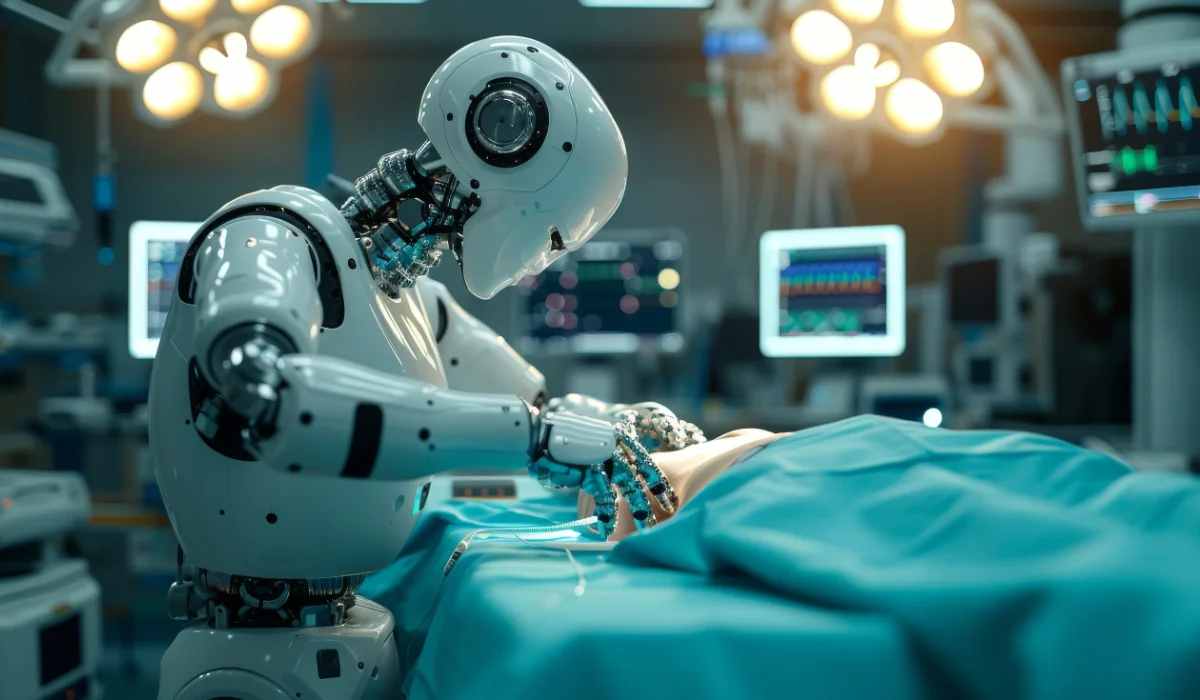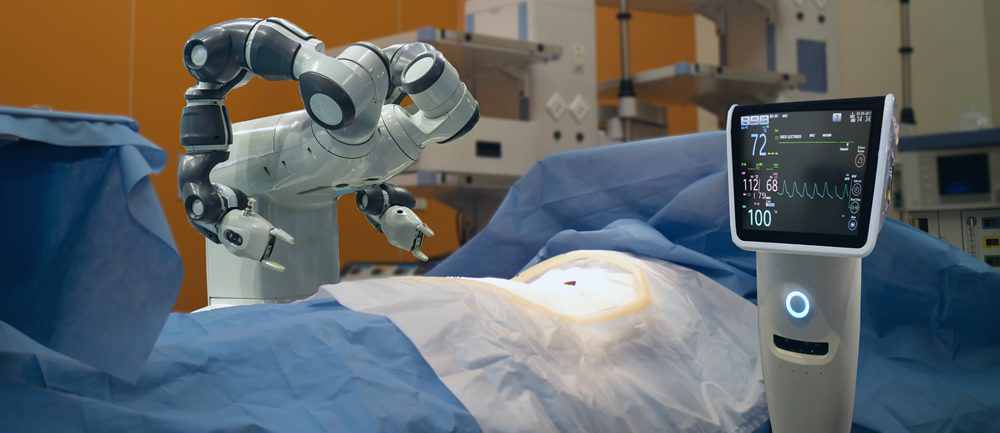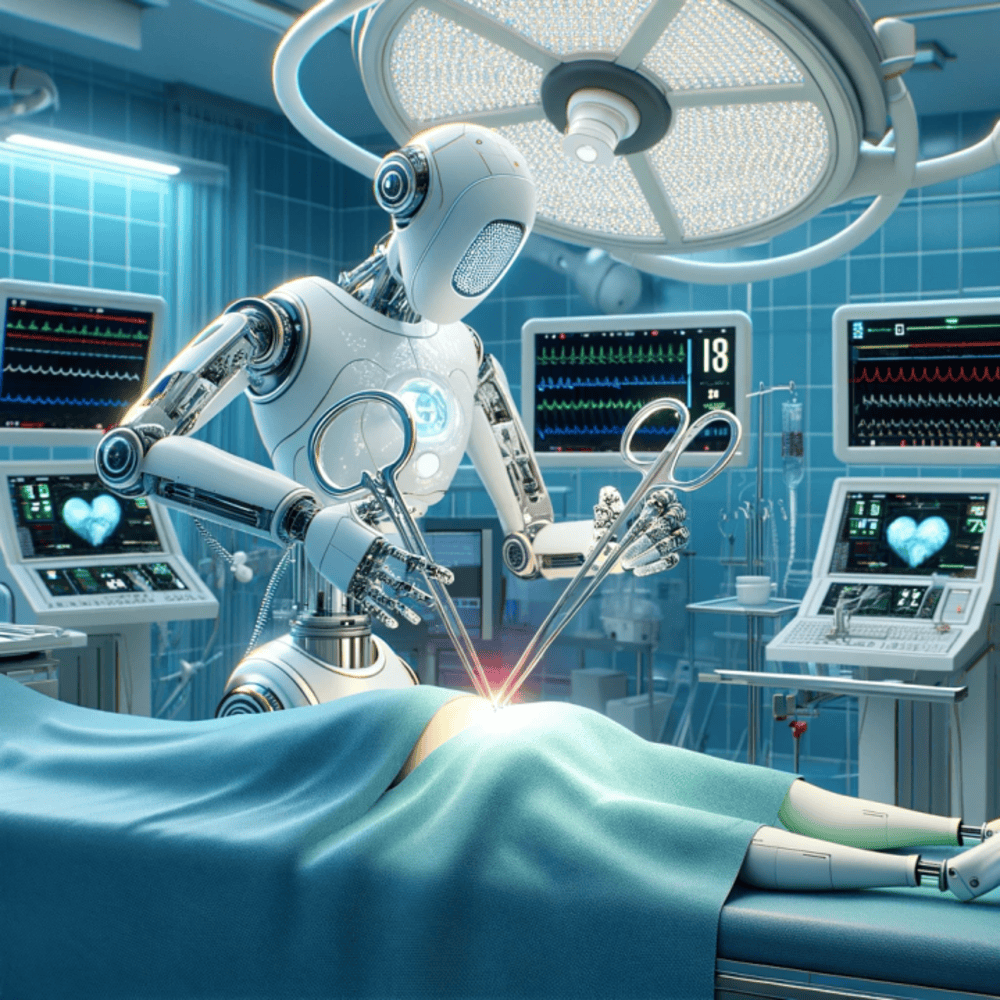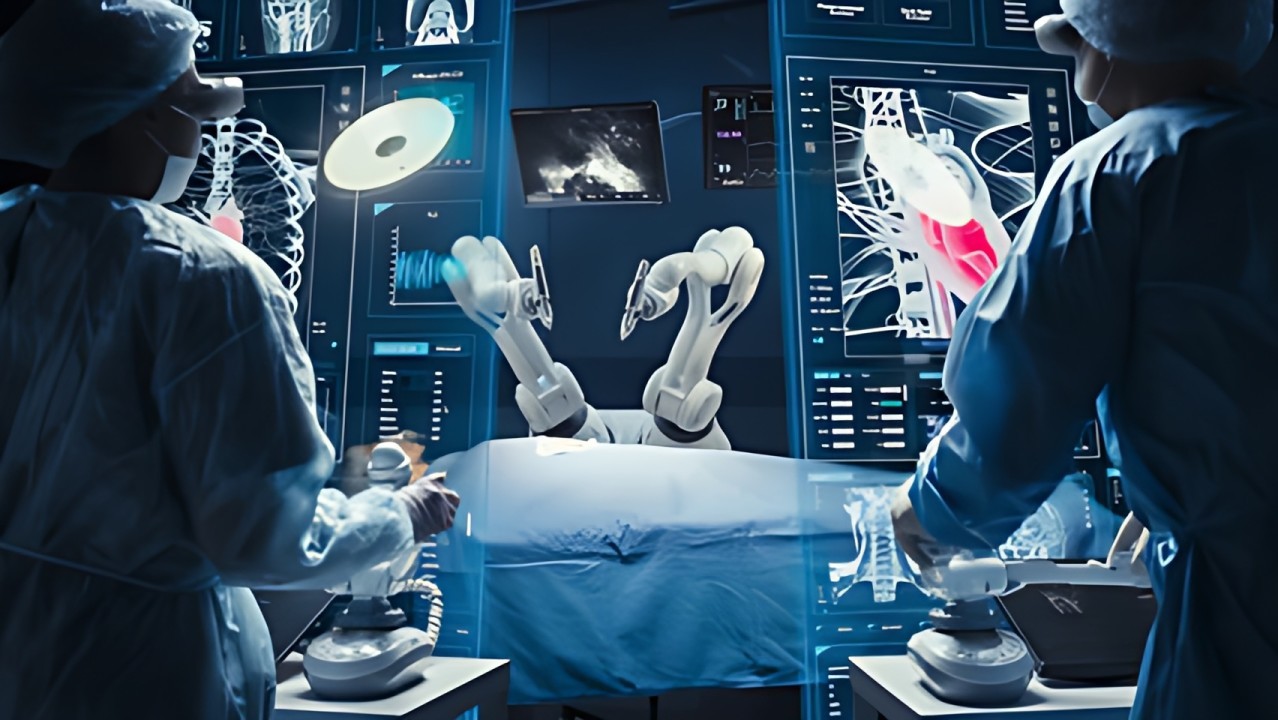
AI-Assisted Surgeries: Are Robot Doctors the Future?
Healthcare is changing fast. Thanks to AI and robotics, new medical innovations are emerging. Robot-assisted surgeries, which seem like a thing from the science fiction era, are now becoming true. As we enter this tech revolution, we can all ask: Are robot doctors the future? This blog discusses the future of medical robotics and the role of Artificial Intelligence in healthcare and surgery.
This topic is crucial. As an older population lives longer and healthcare systems face increasing demands, efficient surgeries are more vital than ever. Surgeries added to AI can lead to better outcomes, fewer human errors, and access to patients in remote areas. However,w e also need to address the challenges and ethical problems these advances have wrought.
Key Benefits / Why It Matters

Enhancing Surgical Precision
AI can greatly improve surgical precision. Traditional surgeries have human limits, and factors like fatigue and skill variation can affect outcomes. Medical robots, on the other hand, provide unmatched accuracy, allowing surgeons to perform complex procedures with less invasiveness.
A study in The Lancet found a 21% drop in surgical complications with AI-assisted surgeries compared to traditional ones. This boost in precision benefits patients shortens recovery times, cuts hospital stays, and lowers healthcare costs.
Expanding Access to Healthcare
AI-assisted surgeries could make healthcare more accessible. In remote areas where specialists are hard to find, medical robots can help. Using telemedicine, expert surgeons can guide procedures from far away, ensuring that patients get top-notch care no matter where they are.
Data-Driven Decision Making
AI also supports data-driven decisions in healthcare. AI can spot trends and predict outcomes by examining large amounts of patient data. This enables personalised treatment plans, ensuring each patient gets care tailored to their needs.
Reducing Surgeon Fatigue and Enhancing Workflow
Surgeon fatigue is a serious issue that often leads to mistakes. AI robotic systems can take over repetitive tasks, allowing surgeons to focus on complex decisions. This improves overall efficiency in surgery, cuts operating times, and optimises hospital resource use.
Step-by-Step Guide / Actionable Insights
Understanding the Role of Medical Robotics
The Evolution of Medical Robotics
Medical robotics began in the late 20th century with systems like the da Vinci Surgical System. These early innovations set the stage for the advanced AI-assisted surgeries we have today. Knowing this history helps us appreciate modern medical robotics.
How AI Enhances Surgical Procedures
AI learns from large datasets, improving its effectiveness over time. In surgery, it can assist with planning, guidance during operations, and post-operative analysis. For instance, AI can create 3D models of a patient’s anatomy, letting surgeons practice complex procedures before surgery.
Implementing AI in Healthcare
Overcoming Implementation Challenges
While AI-assisted surgeries have clear benefits, implementing these technologies isn’t easy. High costs, regulations, and the need for specialised training are big hurdles. However, as technology improves and costs drop, these challenges are getting easier to tackle.
Ensuring Ethical Use of AI
Ethics are critical when adding AI to healthcare. We must manage issues like data privacy, algorithm bias, and the risk of job losses. Creating strong ethical guidelines and being transparent in AI decisions are essential to address these concerns.
Additional Expert Tips & Common Mistakes to Avoid

Best Practices for AI-Assisted Surgeries
- Continuous Training: Surgeons need ongoing training to use AI surgical tools effectively. This keeps them skilled in the latest techniques.
- Interdisciplinary Collaboration: Teamwork among surgeons, AI experts, and ethicists is vital for successful AI integration. This approach ensures all aspects of AI-assisted surgeries are considered.
- Real-Time Monitoring: Using AI for real-time monitoring during surgeries helps catch problems immediately, improving outcomes.
Common Mistakes and Misconceptions
- Overreliance on Technology: AI can enhance surgery but isn’t perfect. Surgeons must keep their skills sharp, using AI as a tool, not a replacement.
- Neglecting Patient Communication: Introducing AI shouldn’t replace the importance of talking to patients. They need to feel informed and comfortable using AI in their care.
- Underestimating Integration Costs: Many healthcare providers overlook the costs of integrating AI, including training and system updates.
Advanced Insights / Expert Recommendations
The Future of AI in Healthcare
As AI technology advances, its role in healthcare will grow beyond surgeries. It could transform diagnostics, patient monitoring, and drug development. AI can make healthcare systems more efficient, accurate, and personalised.
Emerging Trends in Medical Robotics
- Nano-Robotics: Tiny robots that can perform surgeries at the cellular level are an exciting development. They could change cancer treatment by precisely targeting and destroying cancer cells.
- AI-Driven Rehabilitation: AI is also improving rehabilitation. Robotic exoskeletons and AI-based physiotherapy programs help patients recover quicker and more effectively.
- Augmented Reality in Surgery: AI-powered augmented reality (AR) projects digital information onto a surgeon’s view, improving accuracy and real-time decision-making.
The Future of AI-Assisted Surgeries

One primary shift healthcare is witnessing is AI-assisted surgeries. They provide unrivalled accuracy, efficiency and access. We must balance with ethical considerations and apply this technology to support humanity, not replace it. But it is coming, and the steps of the individual users are not enough to change the course in the familiar world.
For those in the health care and related professions, embracing AI is a pledge to continuous learning. It offers patients safer, better treatments. On the other hand, the integration of AI in health care could transform medicine and enable a healthier, more equitable world.
So, are you ready to embrace the future of healthcare? Let us know your thoughts, and join the conversation about AI’s role in transforming the medical profession.


